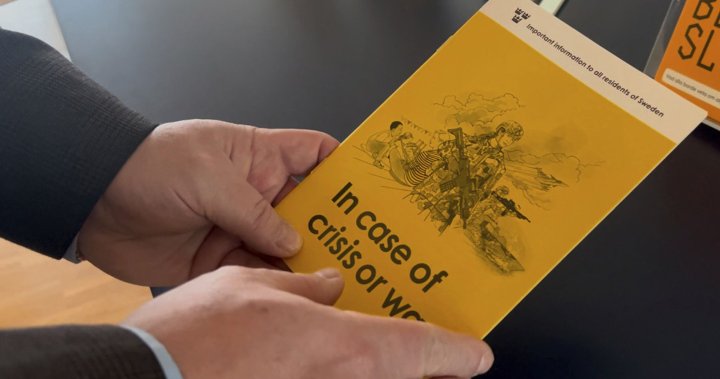Burial societies in Sweden are seeking enough land for something they hope they will never have to do: bury thousands of people in the event of war.
The research follows recommendations from the National Secretariat of the Church of Sweden, which reflect crisis preparedness guidelines from the Swedish Civil Emergency Agency (MSB) and the Swedish Armed Forces.
The preparedness guidelines have been put in a new light following Sweden’s decision to join NATO and tensions with Russia in the Baltic Sea region.
According to the provisions of the Church of Sweden, supported by legal provisions in the Swedish Burial Act, burial societies are responsible for ensuring that sufficient land is available to bury approximately five percent of the population within the parish, if necessary.
The Göteborg Burial Association, which operates in Sweden’s second-largest city, is currently trying to overcome the challenge of acquiring at least 40,470 square meters of land to ensure it can handle urgent coffin burials for some 30,000 dead in the event of war. This is in addition to another 60,700 square meters of land needed to build cemeteries for regular use in Göteborg.
What is grave sharing?
“(The recommendations) mean that we need more land for cemeteries and this is a phenomenon in big cities, and a problem in big cities, where land resources are scarce to begin with and not always sufficient to meet the needs of cemeteries even so that even though land resources are not sufficient to meet the needs of cemeteries, Katarina Evenseth, senior advisor at the Göteborg Burial Association, said: “In times of calm and peace.”
In cooperation with the local municipality, which has a monopoly on land use decisions in Göteborg, the burial society identified a large area suitable for the construction of a large-scale cemetery for its intended purpose.
Get daily national news
Get the day’s top political, economic and current affairs news, headlines, delivered to your inbox once a day.
But the lengthy approval and construction process means it could take nearly 10 years to complete, posing further challenges in uncertain times.
Meanwhile, the Swedish Civil Emergency Agency (MSB) continues to stress the importance of crisis preparedness and highlights the efforts of the Church of Sweden.
“In 2015, the government appointed various authorities to once again start planning for civil defense. Many organizations have started planning, and the Church of Sweden has been at the forefront of this planning,” said Jan-Olov Olsson, Critical Infrastructure Protection Officer. (CIP) Expert in MSB.
“Unfortunately, we are being reminded more and more that war can happen and that we simply need to prepare for it,” Olson said.
Sweden has followed a policy of neutrality since the early 19th century, including during World War II.
But public opinion shifted sharply in 2022 after Russia launched a full-scale invasion of Ukraine, leading Sweden and Finland to apply to join the trans-Atlantic alliance out of concern about the threat posed by their new aggressive Russian neighbor across the Baltic Sea.
Sweden and Finland sent updated civilian preparedness guides in November with instructions on how to survive war. The evidence is similar to that in Denmark and Norway, although it does not mention Russia by name.
Finland signs a 10-year security agreement with Ukraine to boost its military aid
& Edition 2024 The Canadian Press




